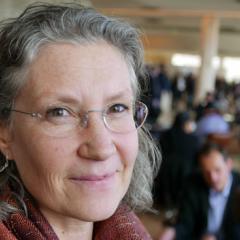What comes after Durban for agriculture and adaptation
There is little doubt that agriculture is both affected by and directly affects climate change. Exactly how to address agriculture within the U.N. Framework Convention on Climate Change (UFCCC), however, is not easy to answer. Before Durban, negotiating text had been circulating since before the 2009 Copenhagen climate summit, virtually unchanged for two years.
How could agriculture be so controversial, one might wonder? One of the main sticking points for agreement over the agriculture text was the legal context in which negotiations were set. Agriculture was being considered under a mitigation workstream in the Bali Action Plan called “Cooperative sectoral approaches and sector-specific actions.” The framing constraints imposed on the negotiations by a mitigation context made many countries unhappy. Most developing countries, for example, are much more concerned about impacts of climate change on agricultural production and adaptation challenges, and felt no need to agree on how to cooperate on mitigation within the sector. The two weeks of negotiations in Copenhagen in 2009 were taken up convincing developed countries to insert language on adaptation, food security and small farmers, but in the end no agreement on the complete text was reached.
